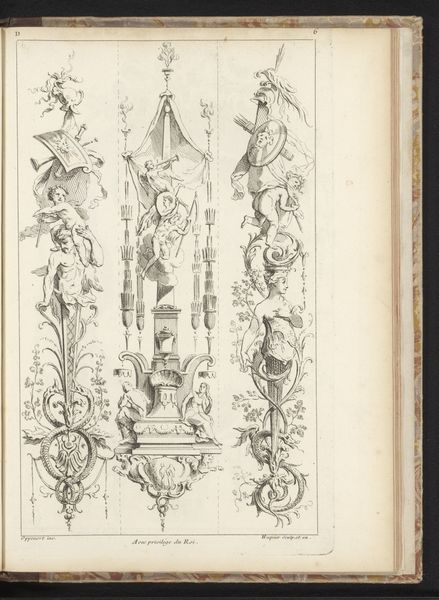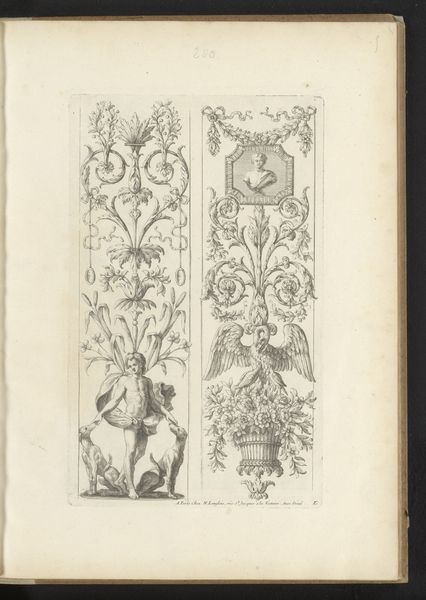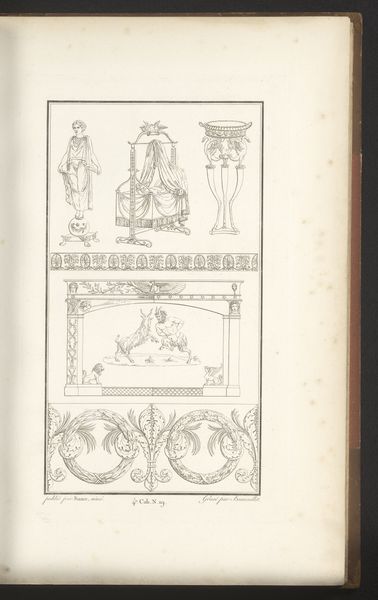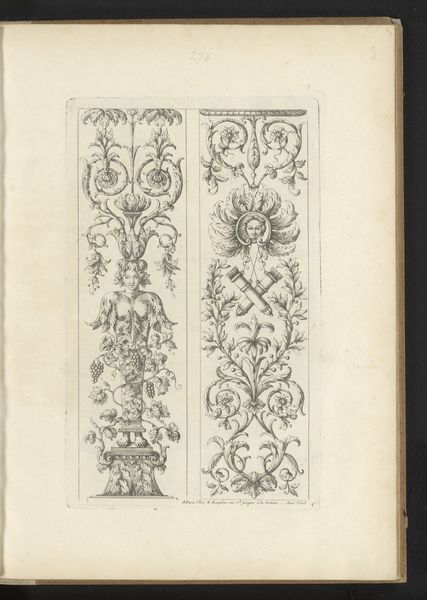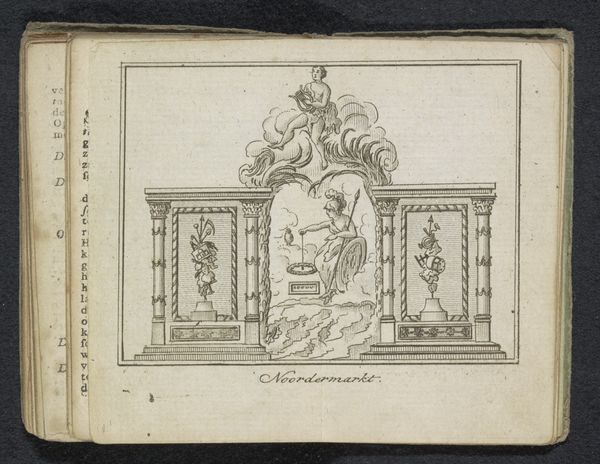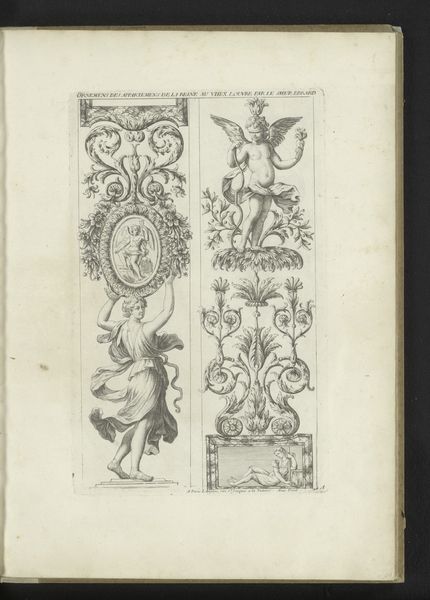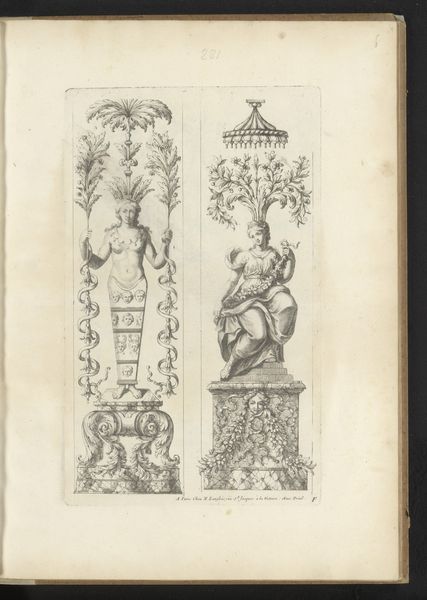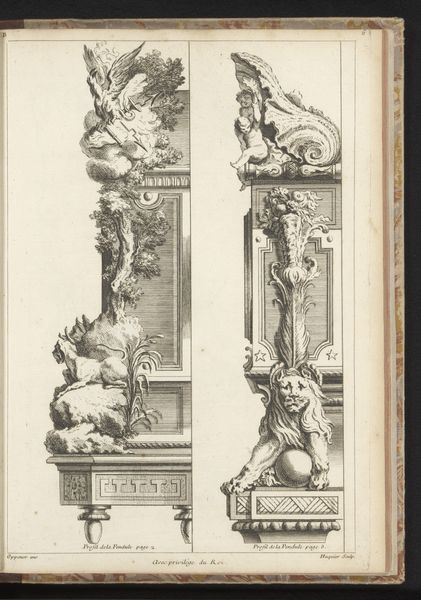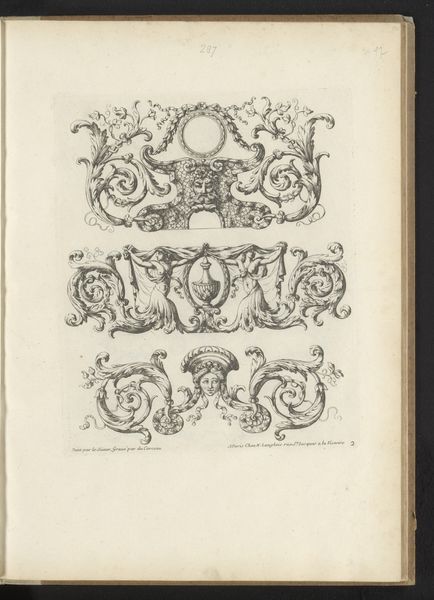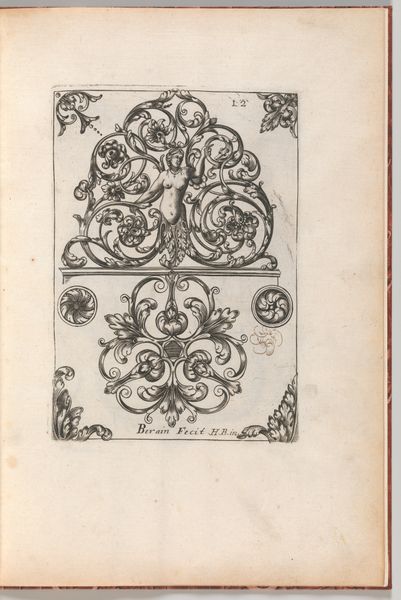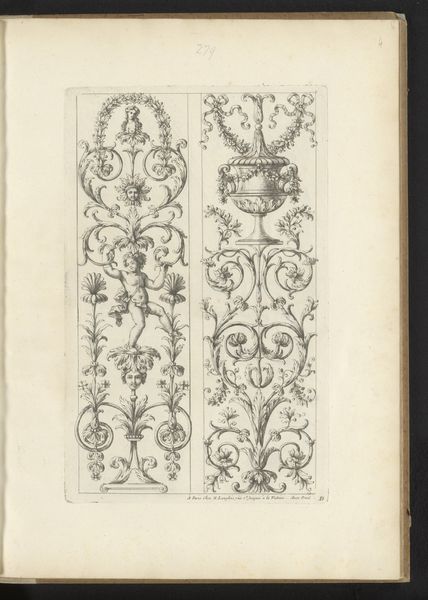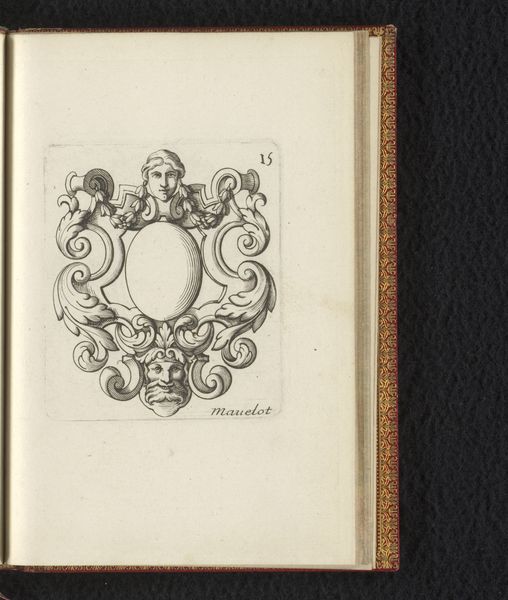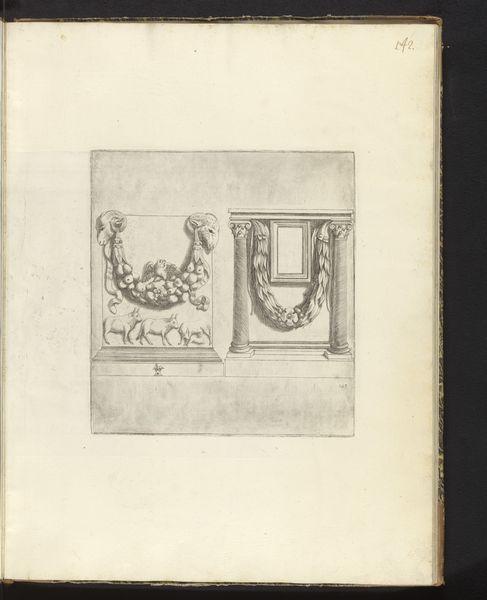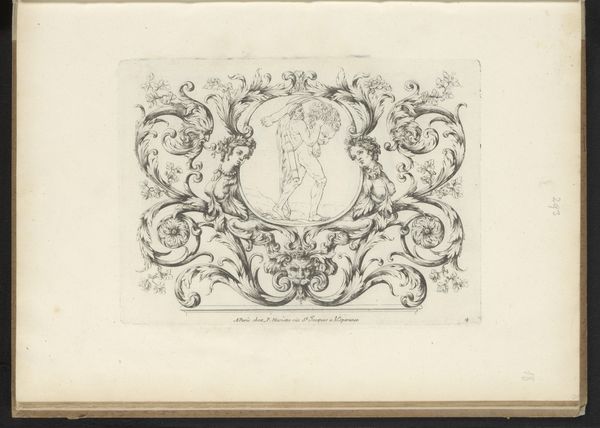
drawing, ink, pen, engraving
#
drawing
#
baroque
#
ink
#
line
#
pen
#
decorative-art
#
engraving
Dimensions: height 299 mm, width 183 mm
Copyright: Rijks Museum: Open Domain
Editor: This is a pen and ink drawing by Paul Androuet Ducerceau from between 1650 and 1703, titled “Two Panels with Candelabras with Leaf Tendrils.” The elaborate decorations really give it that Baroque flair. The figure blowing the trumpet looks like an angel on the left side and the rest appears decorative. What would this have been used for, and who was the intended audience? Curator: The meticulous detail suggests this was a design proposal, perhaps for interior decoration or metalwork. In the Baroque period, such drawings were often presented to wealthy patrons or aristocratic families, intended for spaces of high status. This served to showcase an artist's skill and creativity, which acted as a powerful mode of promotion. It essentially demonstrates how an artist’s status in the social hierarchy, was raised by wealthy aristocrats and patrons. What do you notice about the symbols used here? Editor: The leaf tendrils and the swan motif strike me as quite regal. Is that a portrait in the bottom of the second panel? Curator: Good observation. Including the portrait might be a way of flattering the patron, suggesting that their image or family crest could be incorporated into the final design. These drawings functioned as social objects, subtly reinforcing existing power structures and the importance of visual representation. The museum functions today in very different ways. Can you draw parallels? Editor: Today a museum could showcase works for similar audiences with similar interests, only it democratizes the audience with technology such as podcasts and audio guides. But museums today also promote the visibility of works and make them available for educational and community purposes. I never really considered how art, even drawings like this, played such a vital social and political role in the past. Curator: Precisely. These designs tell a fascinating story about artistic patronage, social status, and the ways in which art was integrated into everyday life. It helps us see beyond the visual and into the complex web of social and historical contexts.
Comments
No comments
Be the first to comment and join the conversation on the ultimate creative platform.
